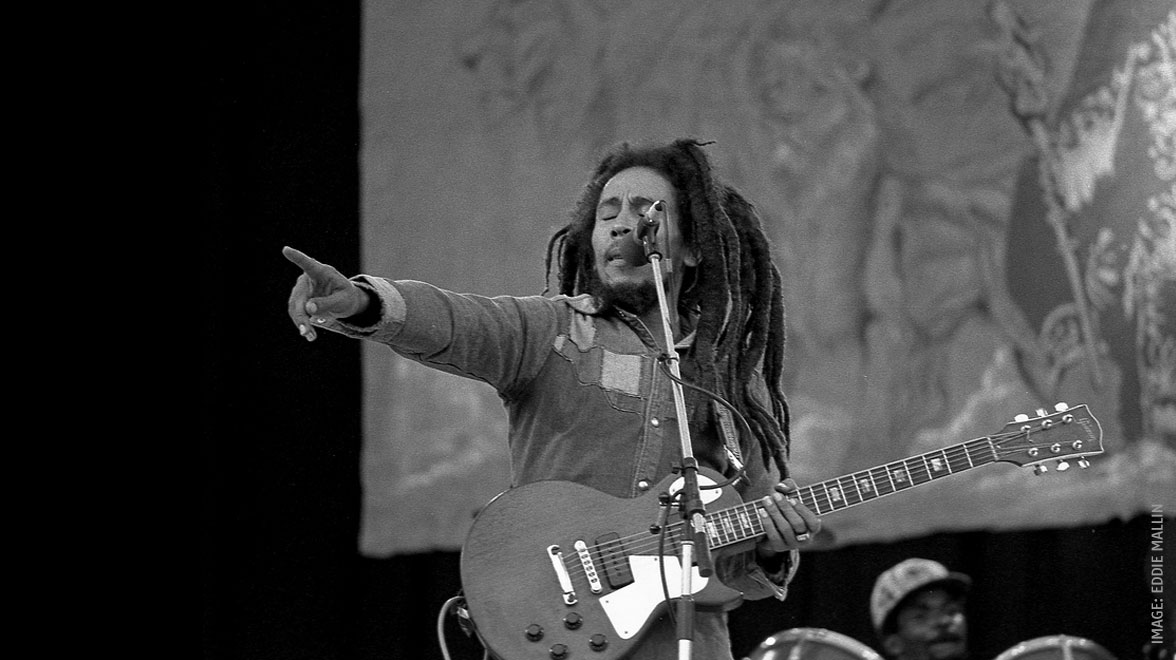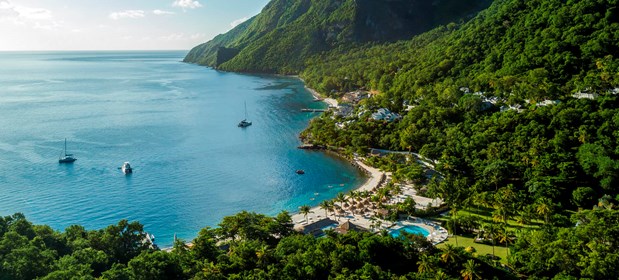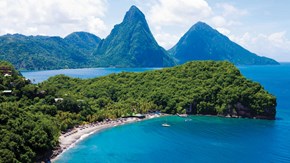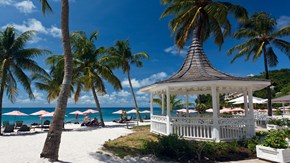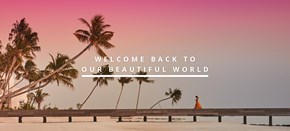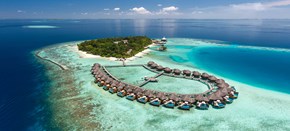There came a point during my university days where I swore that if I heard someone strike up the opening chords to Bob Marley’s ‘Redemption Song’ one more time around a campfire, I’d grab their guitar off them and put my foot through it. Not that I have anything against Jamaica’s most famous son, it was just one of those songs that got over-played to the point where I never wanted to hear it again, and it was symptomatic of the fact that most students have a reggae collection that comprises of just one CD, The Best of Bob Marley and The Wailers. Like I said, there’s nothing wrong with Bob Marley, and that album is packed full of brilliant songs, but it would be a shame just to limit yourself to Bob, since reggae is an incredibly rich and varied genre, one that can trace its roots all the way back to Africa and one that has influenced everyone from The Beatles to Snoop Dogg.
Reggae is of course synonymous with the island of Jamaica, though my own love for Jamaican music developed in those same student days living in Bristol, a city with a prominent Caribbean heritage that is reflected in the local music scene. Bristol was, of course, a major transit point for the slave trade, and it was those slave ships that carried the culture and traditions of the west coast of Africa across the ocean to the islands of the Caribbean. The first distinctively Jamaican sound that developed was mento, a type of folk music that drew on African influences and became popular outside of Jamaica in the 1950s. Mento is often confused with calypso, which originated in Trinidad, and many of the popular ‘calypso’ songs of the era are really closer to the Jamaican mento style. One of the biggest hits of the time was ‘Day-O (The Banana Boat Song)’ by Harry Belafonte, a New Yorker of Jamaican origin, which you might well recognise:
Later in the ‘50s, a new sound, ska, began to develop. Ska drew on both mento and American rhythm and blues, and was characterised by offbeat rhythms that give the music an unmistakeable bounce. The tempo is a little faster than reggae, but you can clearly hear the beginnings of the reggae style in much of the music from this era. Ska enjoyed a revival in the UK in the 1970s, when bands like The Specials and Madness came to the fore, but for a good example of the earlier Jamaican sound, listen to Dandy Livingstone’s original (and in my opinion superior) version of ‘Rudy, A Message To You’, later made famous in this country by The Specials:
Mid-way through the 1960s, ska evolved into a slower, smoother style called rocksteady, influenced by American soul music. Rocksteady was a short-lived phenomenon, lasting only a couple of years, and the songs were mostly love songs, although the political and religious themes that became so prevalent in reggae did start to make an appearance. Desmond Dekker’s hit ‘Beautiful and Dangerous’ is a classic example of the genre:
It was only in the late 1960s that reggae emerged as a style in its own right, with the signature shuffling rhythm owing much to rocksteady. The music became increasingly dominated by the bassline, pianos were replaced by electric organs, and the focus of the lyrics shifted from love to themes of politics, protest and black identity. Another huge influence on reggae was Rastafari, a spiritual movement that arose in the 1930s in Jamaica. Rastas worship the former emperor of Ethiopia, Haile Selassie, and the faith draws on both Christian and Jewish traditions, with a single god, Jah, forming part of a Holy Trinity. The Rastafari movement is centred on Africa, where it is believed that paradise, or Zion, will be created, and you will hear references to Rastafari beliefs frequently in reggae music. Indeed, it’s perhaps not often appreciated that a lot of reggae is really a form of religious music. One of my favourite tracks in this mould is Linval Thompson’s ‘Jah Jah is the Conqueror’, which talks about Jah as ‘the conquering lion of Judah’:
The world’s most famous Rastafari is, of course, that man Bob Marley, who was a follower for many years before converting to Christianity shortly before his untimely death at the age of 36. I’m sure you don’t need me to tell you about the impact Marley had on the history of reggae, bringing the music to a huge global audience with a string of hit songs that transcended the genre. Many of his songs were fiercely political, railing against injustice, though over time some of that edge has perhaps been lost in the popular perception of the man.
Reggae has spawned many sub-genres over the years, such as the softer ‘lovers rock’ that developed in London as a counterpoint to the Rastafari-dominated Jamaican scene, and the harder-edged dancehall and ragga styles, where the lyrics are typically delivered in a style more akin to rap. You can also hear the influence of reggae on popular music throughout the last 60 years, from The Beatles’ ‘Ob-La-Di, Ob-La-Da’ to Rihanna’s ‘Man Down’ via The Clash’s seminal ‘London Calling’.
This has been but a brief introduction to the genre, and I would urge any music lover to dig a little deeper into Jamaica’s musical history, because there’s so much variety. For me, reggae is the perfect music to relax to, no more so than when the sun is out, so it’s no surprise that it endures as the soundtrack to life in the Caribbean. It’s music that has the capacity to make you think, it’s music that tells the story of the people and the places that produced it, and more than anything, it’s music that puts a smile on your face. And to prove it, I will leave you with probably my favourite Bob Marley song, ‘Could You Be Loved’.
